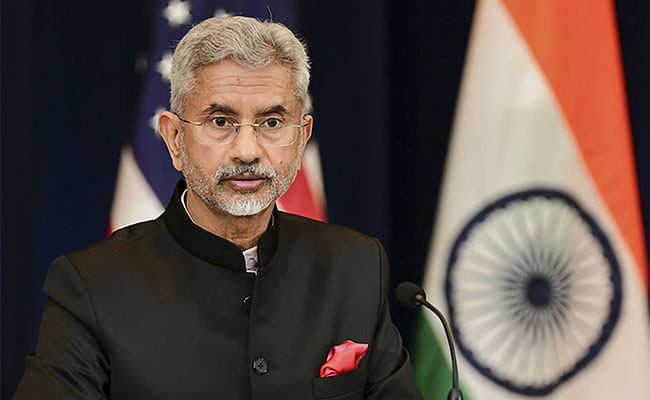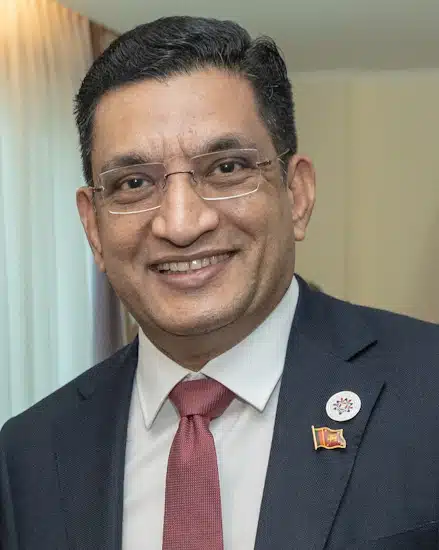
On 4 March 2024, in Delhi, Srilankan Foreign Minister Ali Sabry met External Affairs Minister S.Jaishankar.
The Srilankan Government is focusing on the IMF bailout package, which will be decided in April, where written assurances of China are needed. Despite having recent troubles in the company, Foreign Minister Ali Sabry is confident about the Adani group to complete the projects in Srilanka which are negotiated as government to government.
He said that the financial condition of Srilanka is better than last year and the island won’t allow the nation to be hub for anything that will be harmful to India’s security interests.
The Srilankan Foreign Minister said this against the backdrop of bilateral ties that are taking a hit after a Chinese surveillance vessel visited Hambantota port last year.
Ali Sabry spoke about how India helped Srilanka to cope with the unprecedented economic crisis and he also talked about his government’s plans to work closely with Delhi to strengthen economic recovery which also includes proposals for setting payments in national currencies.
He also spoke about the efforts of the Srilankan government to the delegation of powers to the Tamil minority.
Many questions were asked by Siddhant Sibbal, the interviewer, regarding the economic problems of Srilanka, one of the foremost challenges, views on India providing assurances to IMF and further development of Trincomalee oil farm and many more. He answered everything gracefully and He believed that rising India will create many opportunities for Srilanka and India will become a good leader and spearhead development in the south Asian region.
Economic Crisis in Sri Lanka.

Sri Lanka has been facing economic challenges in recent years, which have been exacerbated by the COVID-19 pandemic. Some of the key issues facing the Sri Lankan economy include:
High debt levels: Sri Lanka has one of the highest debt-to-GDP ratios in the world, with government debt at around 101% of GDP. This has led to concerns about the country’s ability to repay its debts and has resulted in credit downgrades.
Foreign exchange shortages: Sri Lanka has been struggling with foreign exchange shortages, which have been exacerbated by the pandemic. This has led to a shortage of foreign currency to pay for imports, resulting in a decline in imports and a shortage of essential goods.
Declining exports: Sri Lanka’s exports have been declining in recent years, which has harmed the country’s economy. The pandemic has further worsened this trend, with a decline in demand for Sri Lankan products and disruptions to global supply chains.
Declining tourism: Tourism is a major source of revenue for Sri Lanka, but the industry has been hit hard by the pandemic. Travel restrictions and border closures have led to a significant decline in tourist arrivals, resulting in a loss of revenue for the country.
Political instability: Political instability in Sri Lanka has also contributed to economic challenges. The country has seen multiple changes in government in recent years, which has led to policy uncertainty and a lack of continuity in economic policies.

The Sri Lankan government has implemented various measures to address these challenges, including seeking debt relief from international creditors, promoting exports and foreign investment, and introducing reforms to improve the business environment. However, the country continues to face significant economic challenges, and it will require sustained efforts and reforms to overcome them.
India-Sri Lanka Relations.
The relationship between Sri Lanka and India has been characterized by a mix of cooperation and tension, with both countries sharing historical, cultural, and economic ties. Some key points in their relationship include:
Historical ties: India and Sri Lanka have a long history of cultural and economic exchange, with Buddhism and Hinduism playing a significant role in both countries. However, there have also been tensions stemming from colonialism and political conflicts, such as India’s involvement in Sri Lanka’s civil war.
Economic ties: India is one of Sri Lanka’s largest trading partners, with bilateral trade between the two countries totaling over $6 billion in 2020. Indian companies have also invested heavily in Sri Lanka’s infrastructure and energy sectors.
Diplomatic tensions: There have been several instances of diplomatic tensions between the two countries, particularly over issues related to Sri Lanka’s relations with China and India’s perceived interference in Sri Lanka’s internal affairs.
Overall, while the relationship between Sri Lanka and India has had its share of challenges, both countries recognize the importance of maintaining strong ties for the benefit of their people and the region as a whole.













